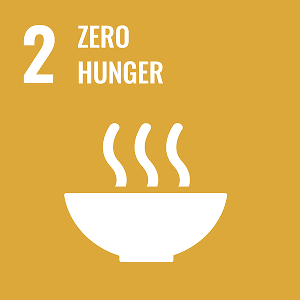Food Product Quality
The case studies on this page will introduce you to food quality at Yoshinoya.
Basic Policy
Yoshinoya has established a Food Safety Policy for the food ingredients it provides, and it is addressing all foreseeable food-related risks, including raw materials, processing, transportation, storage, and serving of food to customers. In addition, assuming potential risks such as bacterial and viral food poisoning, allergies, pesticides, and foreign objects, we handle all processes hygienically. Furthermore, we constantly incorporate the latest scientific knowledge obtained from regulatory authorities, inspection organizations, and the food industry. Thus we are pursuing the safety of our customers from every conceivable angle by constructing and operating a realistic, highly effective quality assurance system.


Example of Activities
Food Hygiene Education
Yoshinoya regularly conducts food safety training to ensure that all employees achieve a standard level of knowledge, and are working to maintain and improve that knowledge. Moreover, we regularly have a third-party organization conduct hygiene tests. We also provide education separately based on objective evaluations. In training at our restaurants, we incorporate videos in a host of tools such as manuals to improve the educational environment for part-time employees. The quality assurance department is constantly acquiring the latest specialized knowledge, thereby improving the company. In addition to providing training to purchasing staff to improve the level of knowledge by the quality assurance department, we also provide guidance on improvements to our business partners by having purchasing staff and the department itself conduct joint inspections based on ingredient characteristics.
Providing Information on Quality to Customers
Yoshinoya provides information on food products to customers via its website and tablets at restaurants. Furthermore, display contents are checked in advance by the quality assurance department and, if necessary, by the legal affairs department.
- Allergies: We disclose information regarding specific raw materials and allergens to be declared on a voluntary basis. In addition, certain restaurants use pictograms.
- Place of origin: We disclose the origin of main ingredients.
- Traceability: We disclose the required information in compliance with the Rice Traceability Act and the Beef Traceability Act.
Labeling of Allergens and Nutritional Information
Yoshinoya publishes allergy information so that customers may enjoy their meals with peace of mind.
Note: Please note that this information may not be available at all restaurants.
Notes on Allergy Information
- Ingredients may be changed without notice and without changes to the menu. Customers should check the allergy information upon each restaurant visit. We update the allergy information when ingredients change.
- Discretionary condiments such as red pickled ginger, shichimi (blend of seven spices), soy sauce, and salad dressings, are not included in allergy information.
- Nutritional values are estimated based on the balance of ingredients. Customers should note that, due to each product being handmade, there may be slight variations in the final product.
- All fried foods are fried in the same fryer. Moreover, it is possible that accidental contamination of allergenic substances across products or ingredients will occur during the cooking process.
- With regard to marine products, in some cases shrimp and crab that are harvested together may be used. Customers should exercise particular care with regard to aosa, or sea lettuce.
- Crabs and clams live symbiotically.
- Some people are far more sensitive to allergenic substances than others. Using the data provided as a reference, we recommend that customers consult a specialist for a final diagnosis.
Display of Nutritional Information
Yoshinoya also provides nutritional information, including calories, protein, fat, carbohydrates, and sodium content.
Nutritional values are estimated based on the balance of ingredients. Customers should note that, due to each product being handmade, there may be slight variations in the final product.
Notes on Nutritional Information
Customers should note that, in line with changes to the menu and to ingredients, nutritional information is updated.
ISO 22000 Certification Received
In October 2016, the Product Department of the Group Product Division, Tokyo Factory, and Kyoto Factory of Yoshinoya Holdings became ISO 22000 certified.
ISO 22000 is an international standard for food safety management systems to ensure provision of safe food products to consumers based on the food sanitation control system of HACCP (Hazard Analysis and Critical Control Point). Making a Group-wide effort to ensure safe and secure products backed by international standards, we are resolved to deliver products that meet customers' expectations.